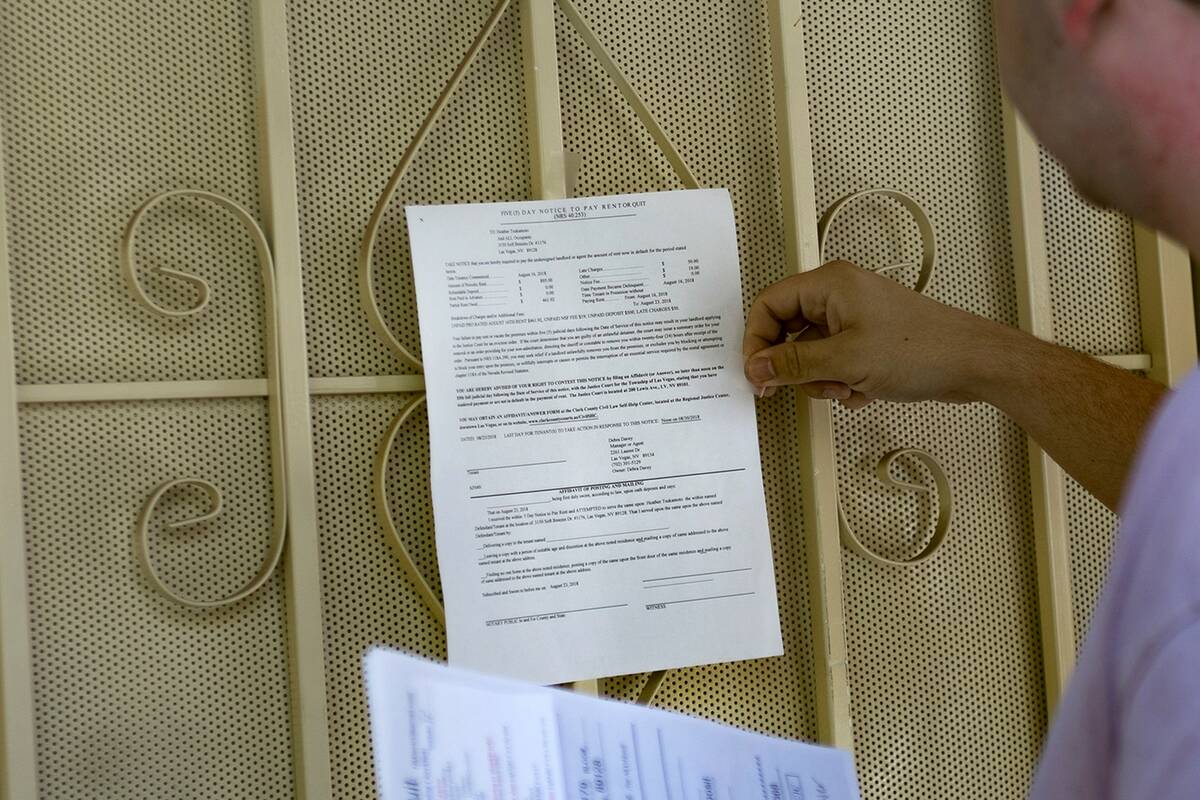EDITORIAL: The worst thing for politicians to do in a housing crisis
At a recent forum for North Las Vegas mayoral candidates, in response to a question from the ACLU, all the participants vowed to enact a rent control law if the Legislature gave them the power to do so. In other words, they favor making it more difficult to find shelter in their hometown.
With the local housing market booming and rents soaring, the siren song of rent control — that old progressive standby — is enjoying renewed airplay. But simply wishing that something were so isn’t enough to erase decades of evidence that, while placing limits on prices may benefit a few, it would be disastrous for the overall market.
Those North Las Vegas mayoral hopefuls who fantasize that heavy-handed market interventions will achieve the desired result should look at St. Paul, Minnesota.
In November, voters in the Midwestern city approved a ballot measure by a 53-47 margin that imposes a 3 percent limit on rent hikes with few exemptions and with no allowances for inflation, now running close to 8 percent. The proposal goes into effect May 1, and landlords found in violation face criminal prosecution.
The effect was swift — although not in the way supporters intended.
“Because people making financing decisions view rent inflexibility as increasing risk, they have been simply leaving St. Paul construction projects by the wayside,” urban geographer Bill Lindeke noted in a March 10 commentary for the online newspaper MinnPost. “As one St. Paul developer described during a recent round table discussion, ‘It’s a concern.’ ”
Indeed, Census Bureau stats cited by a Minnesota state senator “show requests for housing permits have fallen 80 percent in St. Paul since the passage of the referendum,” according to MinnPost. “In Minneapolis … permits are up 68 percent.”
Killing new construction is no way to solve a housing problem. The long-term ramifications of rent caps are also counterproductive, providing little incentive for new landlords to enter the marketplace or for existing ones to upgrade or even maintain their offerings.
With the implementation of the ordinance looming, some politicians now suffer from buyer’s remorse. St. Paul Mayor Melvin Carter, the Minneapolis Star Tribune reports, has proposed exempting newer housing from the law and delaying its enactment until next year. He acknowledged that the threat of rent control is exacerbating shortages. “Anything we do to slow the production of new units,” the mayor said, “will only make this problem worse.”
Democrats in Carson City have toyed with rent control bills, but nothing has made it to the governor. Let’s hope the trend continues. If the North Las Vegas mayoral candidates believe they can make housing affordable by discouraging builders from building, lawmakers need to save them from themselves.






















